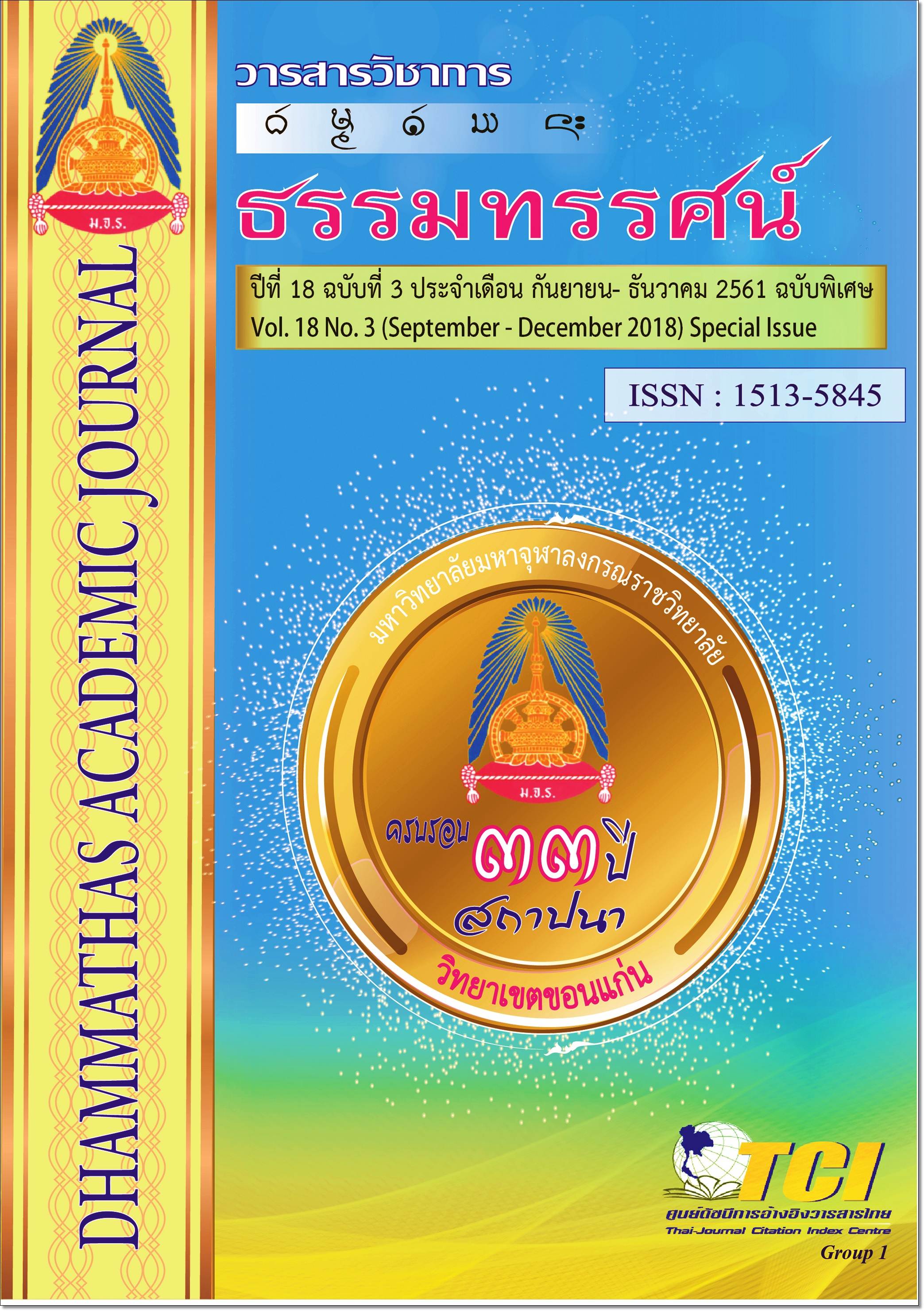The Family’s Stability Creation with Buddhist Integration
Main Article Content
Abstract
The aims of this research were: to study the current problematic conditions of Thai family; to study the Buddhist principles in relation to creating the stability of the family; to study the stable family by Buddhist integration. This study was conducted through the study of Tripiṭaka, commentaries, related document and research related to Buddhism and creating the stability of family. The data obtained were interpreted by a descriptive analysis.
The research results revealed that: the current state of the problem in Thai families is externally caused by a change and economic development including politics, government, society, education, communication, technology; internally caused by spouse unfaithfulness. These two causes affecting the family members lead to emotionally separation, lack of family warmth and good relation, income reduction, family conflict, devoice and violence in family. The dhamma in relation to creating the stability of the family is the qualities which make a couple well matched (samajīvidhamma): equality of faith; moral conduct; generosity; wisdom. The contentment in one own spouse (sadala-santosa) is the dhamma that creates the stability of the family as well as the virtues conductive to benefits in the present (diṭṭhadhammikattha-saṁvattanika-dhamma).
The research results revealed that: the current state of the problem in Thai families is externally caused by a change and economic development including politics, government, society, education, communication, technology; internally caused by spouse unfaithfulness. These two causes affecting the family members lead to emotionally separation, lack of family warmth and good relation, income reduction, family conflict, devoice and violence in family. The dhamma in relation to creating the stability of the family is the qualities which make a couple well matched (samajīvidhamma): equality of faith; moral conduct; generosity; wisdom. The contentment in one own spouse (sadala-santosa) is the dhamma that creates the stability of the family as well as the virtues conductive to benefits in the present (diṭṭhadhammikattha-saṁvattanika-dhamma).
The application of Buddhist principles to create the stability of family can be done by first, using the samajīvidhamma to choose one own spouse with equality of faith; moral conduct; generosity; wisdom. Then the sadala-santosa is used to create the contentment in one own spouse and the diṭṭhadhammikattha-saṁvattanika-dhamma is used in living sufficiently and reasonably. This therefore creates the strong family and happiness in the family. T
he application of Buddhist principles to create the stability of family can be done by first, using the samajīvidhamma to choose one own spouse with equality of faith; moral conduct; generosity; wisdom. Then the sadala-santosa is used to create the contentment in one own spouse and the diṭṭhadhammikattha-saṁvattanika-dhamma is used in living sufficiently and reasonably. This therefore creates the strong family and happiness in the family.
